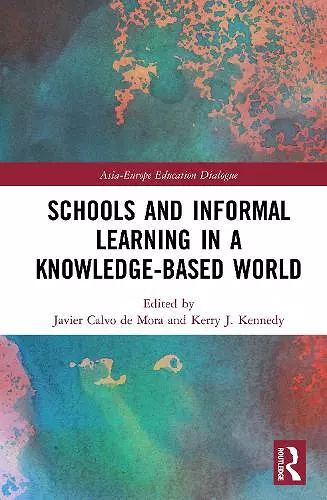Schools and Informal Learning in a Knowledge-Based World
Kerry J Kennedy editor Javier Calvo de Mora editor
Format:Hardback
Publisher:Taylor & Francis Ltd
Published:26th Sep '19
Currently unavailable, and unfortunately no date known when it will be back
This hardback is available in another edition too:
- Paperback£39.99(9781032089287)

This book has two purposes: To open up the debate on the role of informal education in schooling systems and to suggest the kind of school organizational environment that can best facilitate the recognition of informal learning. Successive chapters explore what is often seen as a duality between informal and formal learning. This duality is particularly so because education systems expend so much time and effort in certifying formal knowledge often expressed in school subjects reflecting academic disciplines.Recognizing the contribution informal learning can make to young people’s understanding and development does not negate the importance of valued social knowledge: That complements it. Students come to school with knowledge learnt from their families, peers, the community and both traditional and social media. They should not have to "unlearn" this in order to enter the world of formal learning. Rather, students’ different learning "worlds" should be integrated so that each informs the other. In a knowledge-based society, all learning needs to be valued.
Some contributors to this book reflect on how new educational systems could be created in a move away from top-down authoritarian and bureaucratic management. Such open systems are seen to be more welcoming in acknowledging the importance of informal learning. Others provide practical examples of how informal learning is currently recognized. Some attention is also paid to the evaluation of informal learning. A key objective of the work presented here is to stimulate debate about the role of informal learning in knowledge-based societies and to stimulate thinking about the kind of reforms needed to create more open and more democratic school learning environments.
'This book adds to our understanding of the role of informal learning as a critical contributor to the future of schooling in a wired global context. The authors show how informal learning deepens and broadens what is learned formally and also contributes to student growth and development while helping solve local and global challenges.' -Karen E. Watkins, Professor and Associate Department Head, Department of Lifelong Education, Administration, and Policy (Adult Education, Learning and Organization), The University of Georgia, USA
ISBN: 9780367077563
Dimensions: unknown
Weight: 453g
218 pages